Editor’s Note: We are publishing personal essays from CNN’s global staff as they live and cover the story of Covid-19. Nick Paton Walsh is CNN’s International Security Editor, based in London. He returned to the city from 15 years away in 2017.
It’s only eight days later. Just over a week into the lockdown, and the toilet paper and pasta have magically returned.
London was told it was ahead of the rest of the UK for coronavirus infections by about three weeks. The moment of surge, or peak, is now upon us, even if our best scientists simply can’t be sure how deep is the horror it will bring.
Coronavirus in our world
The city hasn’t collapsed, more held its breath. Sirens rattle vacated roads. Red buses roam emptily, leaving you to wonder where the quarter of passengers reportedly still using them are. A passerby’s cough can echo in the first light, even if the dawn chorus is louder than it’s seemed before.
The past weeks have conjured a capital from dystopian movie sets; a deserted moonscape suddenly lit up, as if someone turned the sunlight back on at 3 a.m. On the first morning of the partial lockdown, the lights were still on at the usually packed Piccadilly Circus junction, but only the pharmacist Boots’ doors were open. Plainclothes police in an unmarked car stopped us. “How long do you plan to be here?” the officer asked our three-strong TV crew, seeming as confused at asking the question as we were at answering it.
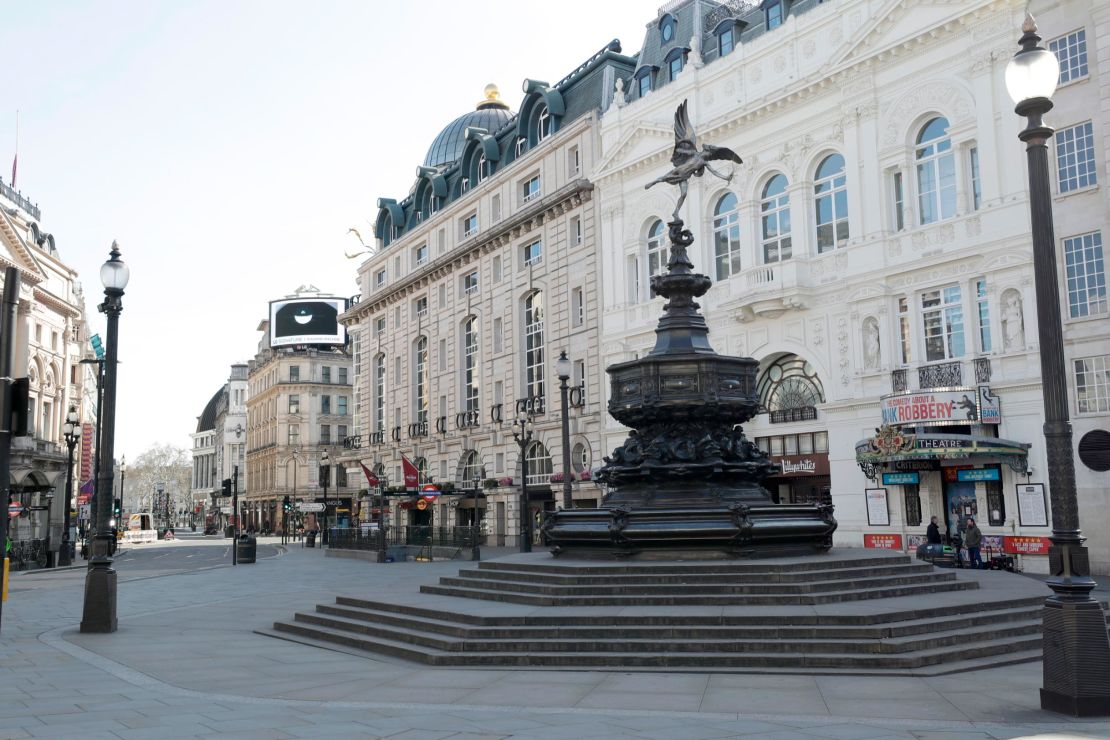
The inconveniences caused by Covid-19 are as many and widespread as its dangers, and there is a race between them to dominate our attention span. We are told it is going to get worse before it gets better. It is already quite bad.
The convenience stores have food aplenty, mostly limiting people to maximum three of anything. Yes, there is a 75-minute queue for one higher-end supermarket in North London, and even four people outside another budget one amid measures put in place to keep people 2 meters (6 feet) apart. The difficulty of getting to the food – not its scarcity – makes you want to buy more than you need.
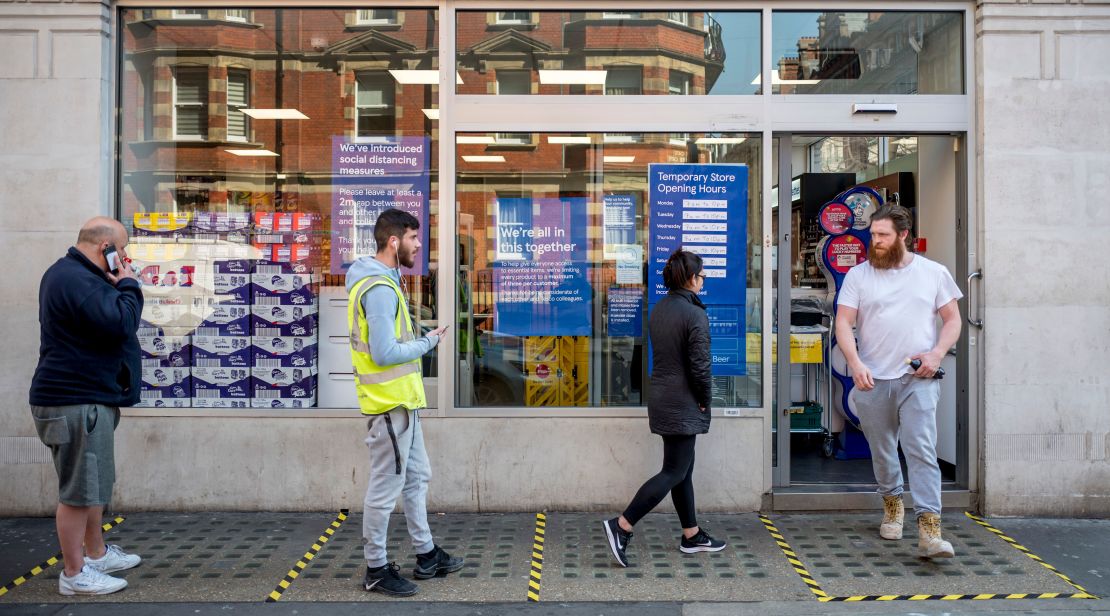
But the numbers are beginning to make these irritants seem petty. The UK’s daily death toll is now often counted in the hundreds, a terrifying escalation that seemed to casually happen overnight. A “good” final total would be under 20,000 dead, UK officials warn. The contrarian voices urging we all get back to work to save the economy, are presumably volunteering to be part of those 20,000.
The UK isn’t testing much, and the 134,946 tests as of Monday morning carried out – in quite strict, specific circumstances often because of severe symptoms – have revealed 22,141 positives. We can only hope that the 112,805 who met the criterion for a test and were cleared are medical staff being deservedly checked and cleared for work. But some of their unions complain tests are too rare. Outside of London, officials have surreally chosen the forecourt of a huge theme park – Chessington World of Adventures, where once you enjoyed lions and rollercoasters in the same day – to test National Health Service (NHS) workers.
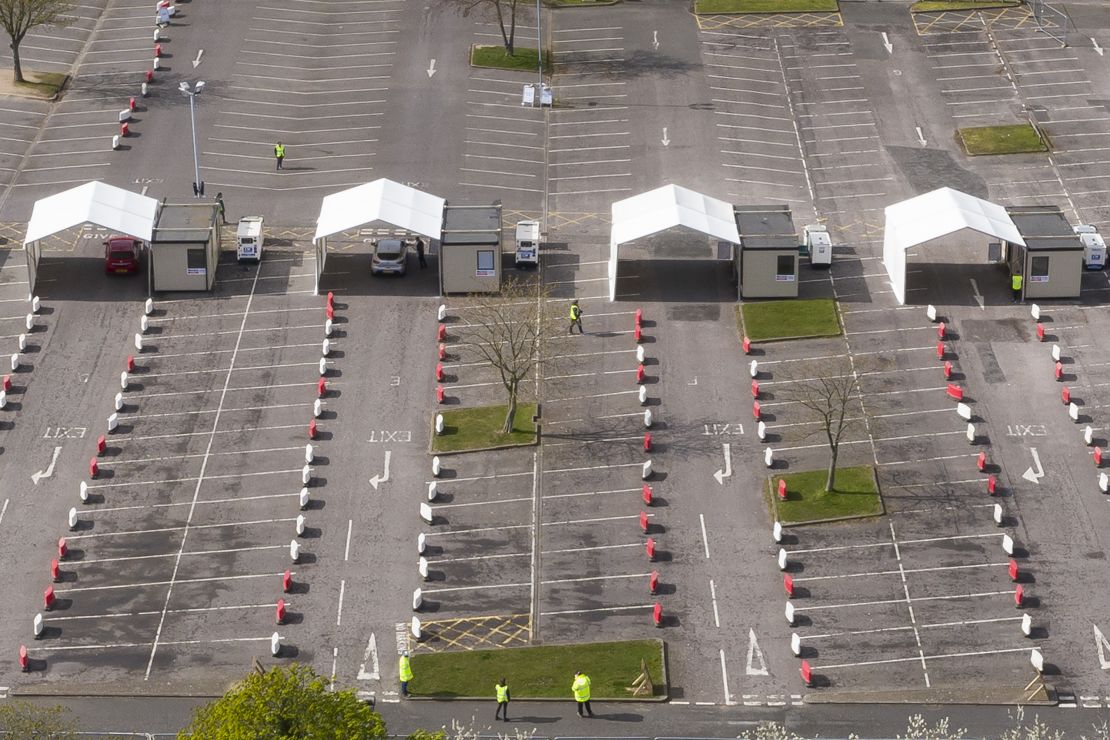
The magical carrots of science are too small and fleeting to distract from the daily stick of lockdown. Most Brits can’t get a test and may never know if they have had coronavirus or have it. Sharon Peacock, the director of the national infection service at Public Health England, wowed us Wednesday for three whole hours. She promised millions of home-testing kits, able to check if people had had the infection, and deliverable by Amazon, within days. That same afternoon, Chris Whitty, the UK’s chief medical officer and favorite realist, said the kits were still an unspecified while away. We know whatever is going to happen here, is going to happen with the lights off.
Sitting comfortably at home, we can all snark at a government facing a challenge that would flatten most of us before our first coffee, and that’s becoming as personal as it is monumental. Should we pay more or less attention to our chief informer and movement-restricter, Prime Minister Boris Johnson, since he tested positive for the virus?
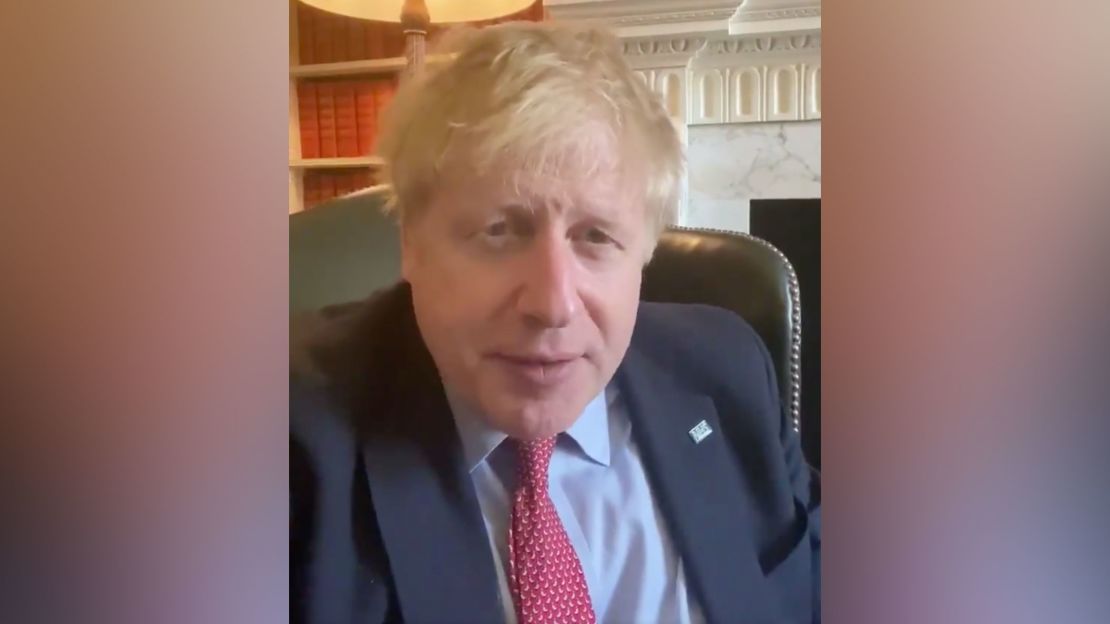
Johnson had earlier said the UK could “take it on the chin”, and even spoke of shaking hands until quite late on. But the tousled, lone figure holding up his own mobile phone – transmitting from his apartment above Number 11 Downing Street like the final broadcast from Sigourney Weaver’s stranded starship – is in itself the direst warning any Briton can have. Britain, as a country, could not keep Boris safe. Nor his health secretary, or the chief medical officer – all of whom have tested positive. It’s not negligence, but the essential nature of their work that likely exposed them. And that causes a pause for thought: How essential is your work? Do you really need to go out?
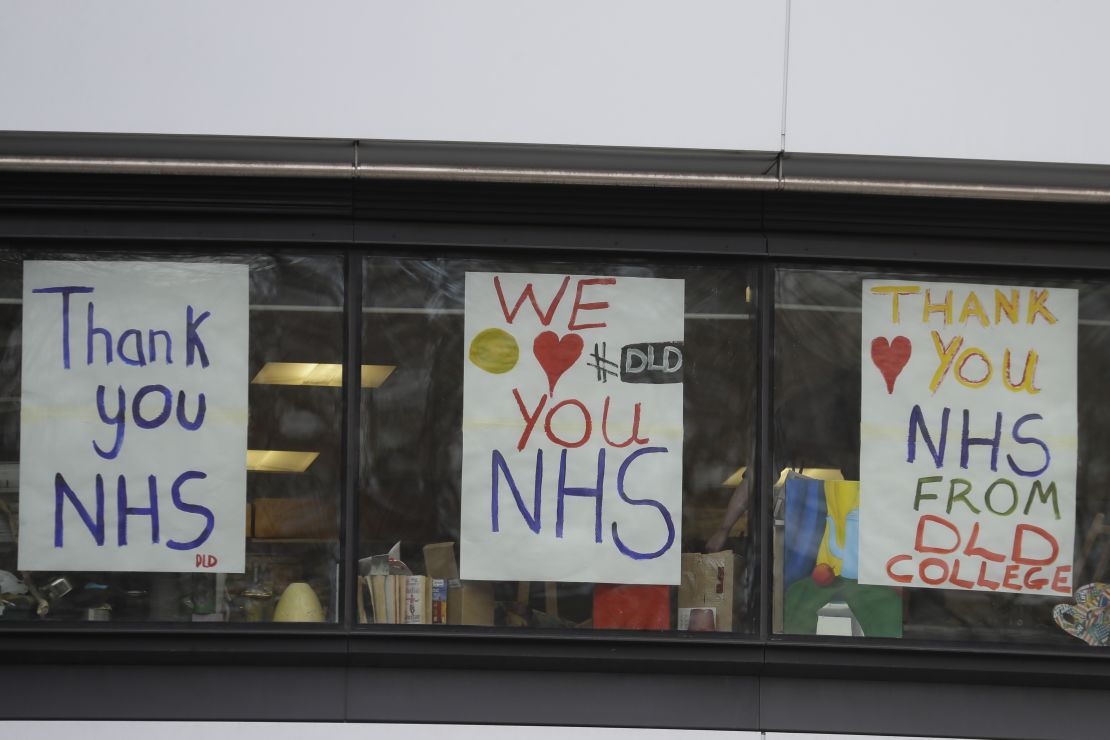
The city’s ability to be nice to itself keeps surging and ebbing. On Thursday, across the country, a nationwide round of applause in support for NHS workers brought us to windows and doorways. Some London neighbors saw the faces of the people who lived opposite for perhaps the first time. It was fleeting, but real.
The idolized NHS free health care service has deftly handed Britain a huge symbol of reassurance, to inspire us to believe it might handle even this – the NHS Nightingale Hospital with potentially 4,000 intensive-care beds on the side of the Thames. Inside, the mammoth, empty conference space of the ExCel Centre is being swiftly delineated into booths by half-finished walls, with soldiers and contractors in high-visibility vests working overtime. Anxious former hotel cleaners mill around the entrance hoping for shifts. Huge columns of heart monitors sat in one hall: an army massing for a battle ahead, whose size is unknowable for now.
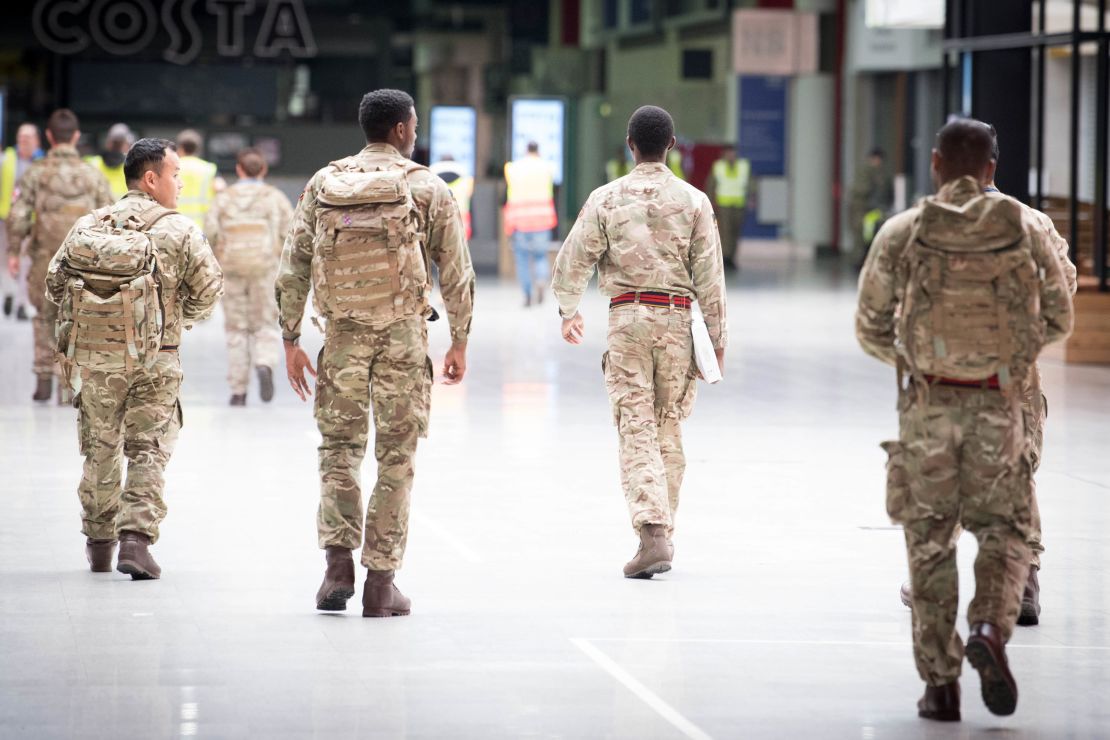
They call it a “pop-up hospital” and its scale comforts as it shows that London wants to be ready, but also disturbs because it speaks of a gargantuan challenge ahead. Perhaps fittingly it is named in honor of Florence Nightingale, who revolutionized nursing only after she had experienced the horrors of the Crimean War.
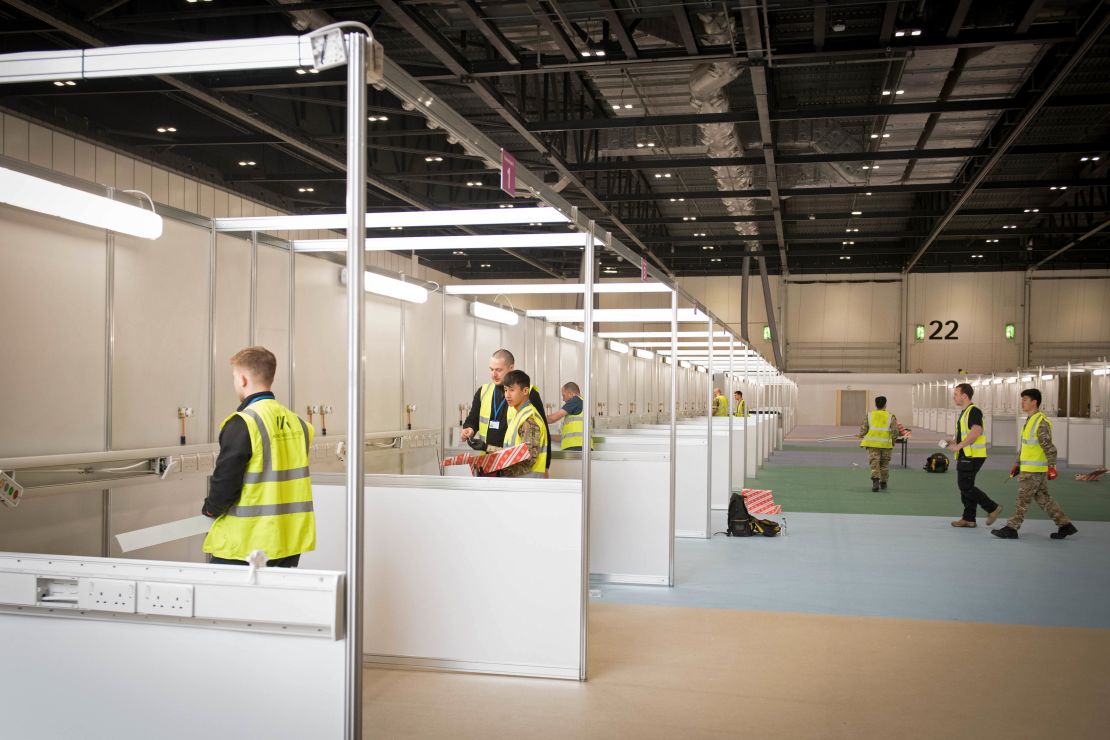
We are in this together, is one mantra, to which officials stick because there are few facts to cling to. We don’t really know how far “it” has spread, how many of us have had it, or who has it now – just that the peak is really here. In London, the only comfort as we enter the dark fortnight ahead, is that its close may bring the end into view.






















